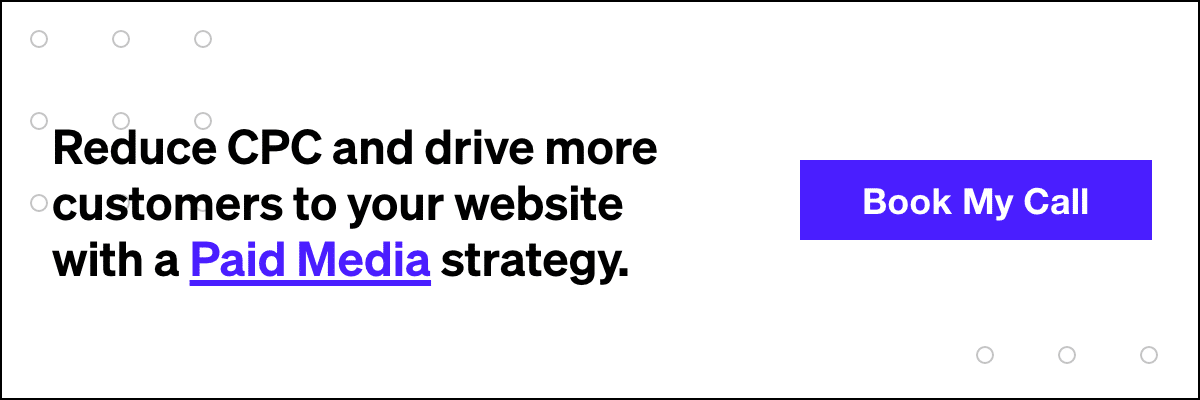The Google search engine results page (SERP) is all about relevance, and Quality Score is no different. Providing the most relevant user experience will lead to a higher quality score and ultimately more impressions, traffic at a lower cost, and, hopefully, conversions. As a marketer it is important to understand what Quality Score is, as well as how it effects your AdWords campaign performance.
What Is Quality Score?
Let’s start with the basics. Google gives each of your keywords a Quality Score based on how relevant it finds your landing page and ad copy to each individual keyword. This score ranges from 1 to 10 (10 being the highest and 1 the lowest) and is determined by the following 3 factors:
- Ad Relevance – How well does your ad messaging match the keyword being searched and the landing page.
- Landing Page Experience – How useful is your landing page to that user based on the search query.
- Expected CTR – How likely is your ad to get clicked.
The best way to think about it is to ask yourself… If I was searching for this keyword, what landing page would I be looking for and what ad best represents the content on that landing page?
Effect Of Quality Score
Now that we know what Quality Score is… let’s talk about how it affects your AdWords campaigns and performance. Google uses this score, along with your max CPC bid to determine your Ad Rank.
(QUALITY SCORE) x (MAX CPC BID) = AD RANK
This is vital because your Ad Rank then determines the ad’s position on the SERP (and whether you are eligible to show at all). Having a higher quality score also means you pay less for a higher average position. For example, if your brand is ‘X’ but brand ‘Y’ begins bidding on your branded keywords, they will have to pay more because Google finds them less relevant. And finally, lower CPCs will lead to increased traffic to your website for the same total budget.
Related: 5 Things Your PPC Agency Should Always Be Monitoring
*One thing to keep in mind is that the Ad Rank is recalculated every time there is an auction (or search), which means your ad position can vary throughout the day based on the competition and bids.
A higher ad rank will not only save you money, it also means your ads are eligible to show more ad extensions (enhanced sitelinks, location extensions, etc.). Lower ranking ads are often limited to the standard ad copy, which results in much less real estate on the SERP and ultimately lower CTRs.
Monitoring Quality Score
Until this year, there was one metric available within AdWords that displayed your Quality Score ranking as of the present day. This made it difficult to understand how your keywords, ad copy, and landing pages were performing over time and as changes or optimizations were made.
Related: Top 6 Must-Have Tools for SEM Marketers
Recently Google made a few exciting updates to the way they track and report on Quality Score, providing even more clarity for advertisers. The following metrics are now available:
- Quality Score – Ranking 1-10
- Landing Page Exp. – Above Average, Average or Below Average
- Ad Relevance – Above Average, Average or Below Average
- Exp. CTR – Above Average, Average or Below Average
All of these four metrics are available with performance as of today, as well as over time (hist.). This means you can pinpoint when your quality score increased or decreased and which attribute triggered it. When looking at a keyword in AdWords, segment by day (or week). Scan each of the three historical columns to see at what time that shift occurred. You can then look at the Change History report to see what could have caused the change.
Improving Quality Score
Quality scores of 1-5 are underperforming when compared to your peers. This likely means that one or more of these factors are considered ‘Below Average’ by Google. Depending on which factor is ranking low, ask yourself the following questions…
Ad Relevance
- Does my ad match the keyword?
- Can I include the keyword directly in my ad copy? Is it currently?
- Did I add negative keywords to ensure my ads are only showing for relevant queries?
- Could I implement single keyword ad groups (SKAG)?
- Are my ads desktop and mobile friendly?
Landing Page Experience
- Am I driving to the most granular page possible?
- Does my landing page mirror the ad’s call-to-action?
- Is my website optimized for both desktop & mobile?
Expected CTR
- Is my ad copy compelling?
- Does my ad copy include a clear call-to-action and benefit?
- Is my ad copy as specific as possible?
- Am I utilizing all available characters and ad extensions?
If you answered no to any of the questions above you may want to revisit it and optimize accordingly.
In summary, Quality Score is a metric you should be constantly monitoring. Knowing what factors effect your Quality Score and how to make improvements will help to ensure you’re able to drive traffic at the lowest possible cost.


















